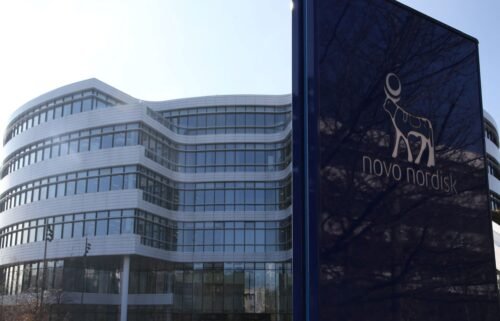The one-trick tech pony is dead

The rise and fall of Fitbit on Wall Street is a cautionary tale for other one-trick pony techs.
Fitbit makes activity trackers and smartwatches that are beloved by many. But it ultimately couldn’t compete with similar products from tech giants Apple and Samsung. That’s a big reason why Fitbit recently agreed to sell itself to Google owner Alphabet.
Shares of Fitbit were languishing below $4.50 until speculation of the deal surfaced late last month. The stock spiked on the takeover rumors and Google ultimately agreed to pay $7.35 a share, or $2.1 billion in cash, for the fitness tracker.
Still, that’s a far cry from when Fitbit traded above $50 a share in July 2015, just a few months after the wearables company went public.
The lesson here may be that at a time when Google and fellow tech titans Apple, Facebook, Amazon and Microsoft seem intent on getting bigger — despite antitrust and other regulatory concerns — niche tech companies may find it difficult to survive, let alone thrive.
Just take a look at what’s happening to some other smaller tech firms.
Specialized tech firms can’t compete with the megacaps
Shares of food delivery service GrubHub tanked last month after it reported disastrous results and an unappetizing outlook. Competition in the business is now intense, with Uber and privately held startups Postmates and DoorDash all gaining traction in that market.
Heck, the delivery business is so cutthroat that even Amazon recently decided to throw in the towel on its own Amazon Restaurants service.
Online review service Yelp has struggled as well, mainly due to competition with Google.
Yelp shares are down more than 40% in the past five years and CEO Jeremy Stoppelman has frequently criticized Google and Facebook for their growing clout in the tech world. He’s even gone so far as to call Google a monopoly on numerous occasions.
And then there’s action camera company GoPro, a firm that helped symbolize the wearables market along with Fitbit.
GoPro tried–and failed–to branch beyond its Hero line of cameras with the since-discontinued Karma line of quadcopter drones. And even though the company recently reported solid sales of its latest Hero camera, GoPro still trades below $5 a share — more than 95% below its all-time high of just under $100 a share, which it reached in September 2014.
So could any of these companies wind up getting bought out by the giant tech companies, as Fitbit did?
Stacks of cash could be used for M&A
Big Tech firms are still sitting on Mount Everest-sized piles of cash on their balance sheets even though many of them have been using more money to buy back stock, pay bigger dividends and increase their research and development budgets.
Moody’s predicted in a report this week that Apple, Microsoft, Alphabet, Amazon, Facebook, Cisco and Oracle will finish 2019 with nearly $640 billion in cash combined. That’s down just 1% from a year ago.
And even though politicians ranging from President Trump to 2020 Democratic contender Elizabeth Warren have criticized the growing clout of tech giants, it’s unclear if these companies are going to change their behavior or cater to pressure from lawmakers.
“Big Tech has not proven to be adept at managing K Street,” said Scott Ladner, chief investment officer at Horizon Investment, told CNN Business in a reference to the Washington D.C. street where many lobbyists have their offices. “It’s been a little clumsy,”
The tech firms also seem more than willing to test how far they can go with their diversification and expansion efforts before Washington calls foul.
Google, for example, confirmed this week that it is collecting health care data as part of a deal with the non-profit health care provider Ascension. The initiative, codenamed Project Nightingale, is already the subject of at least one federal government inquiry.
But unless regulators and lawmakers step in and force tech giants to stop scooping up smaller rivals, specialized companies will likely keep running to deep pocketed tech firms.
That’s exactly what Whole Foods did in 2017 when it sold to Amazon. LinkedIn and GitHub did much the same by selling out to Microsoft. Apple scooped up Shazam and Beats to bolster its music business. And Facebook has acquired Instagram, WhatsApp and VR firm Oculus in its short history.
Fitbit CEO James Park made no qualms about its decision to sell to Google. The company “is an ideal partner to advance our mission,” he said in a press release. “With Google’s resources and global platform, Fitbit will be able to accelerate innovation in the wearables category, scale faster, and make health even more accessible to everyone.”
In other words, if you can’t beat ’em, join ’em.




